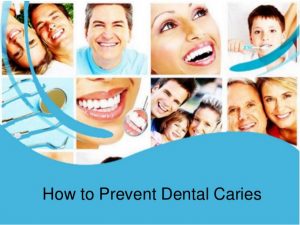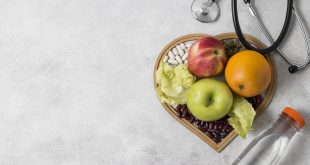To prevent cavities, it is important to adopt good oral hygiene, to favor a diet less rich in sugars and not to snack between meals. Regular check-ups at least once a year with your dentist are essential. For the best knowledge you must have to concern your dentist. We provide best dental services, like dental implant, dentures in San Diego. You can concern us without any hesitation.
BRUSHING YOUR TEETH FROM A YOUNG AGE AND THROUGHOUT YOUR LIFE TO PREVENT CARIES
At what age should children start brushing their teeth?
Few parents know this, but you have to start worrying about oral hygiene from an early age to prevent cavities. Then the hygiene of the teeth and the mouth is to continue all its life and remains capital at an advanced age:
- For infants, it is possible to clean the gums with a square of towel or a thin and wet compress, sold in pharmacies or supermarkets. Oral cleansing should therefore be part of daily cleansing to eliminate bacteria and food scraps.
- Around 6 or 8 months, when the first teeth appear, there are “first age” brushes with extra soft bristles to brush the gums and teeth.
- By the age of 2 or 3, your child should be taught to brush their teeth themselves and spit out the toothpaste. At this age, since the child is not yet able to wash their teeth properly, brushing should be done by the parents.
- Around 6 or 7 years old, your child should know how to brush his teeth on his own.
- In adolescence, be extra vigilant, especially if your child has orthodontic treatment; forgetting to brush is frequent.
- During your pregnancy, keep good oral hygiene because cavities are frequent during this period of life.
- Since good habits have been adopted since childhood, remember to brush your teeth at least twice a day for 2 minutes throughout your life.
- Maintain good oral hygiene when you get older as poor oral health affects the health of the elderly.
Which toothbrush to use and how to brush your teeth properly?
Dentists generally recommend the use of a soft, small-head toothbrush so that you can reach hard-to-reach places. Soft bristles slip more easily between the teeth and therefore allow better cleaning. In all cases, hard bristle toothbrushes are strongly discouraged as they can injure the gums and damage the teeth. Medium bristle toothbrushes can optionally be used.
Remember to change your toothbrush as soon as the bristles are damaged and at least every 3 months. The main thing to maintain good oral hygiene is the quality of brushing. Brushing your teeth helps detach plaque and remove residual food debris. Do not neglect the way you brush your teeth: brush all sides of your teeth, from the gum to the neck of the tooth (“from red to white”), for two minutes, twice a day.
There are different brushing techniques suitable for age and oral condition. Thus, in temporary dentition, the horizontal brushing method is recommended, while in adults, the circular method is preferred. In order to ensure complete cleaning of the oral cavity, brushing of the teeth is completed by brushing of the tongue carrying bacteria. To verify the effectiveness of brushing, dental plaque developer dyes in chewable tablets or liquids can be used. They highlight the areas where dental plaque has not been completely removed and allow perfect brushing of the teeth.
Manual or electric toothbrush?
There is no real consensus on using a manual or electric toothbrush. If brushing is done well with a suitable technique, the use of a manual toothbrush is sufficient. The electric toothbrush can be recommended for people who have difficulty brushing their teeth and using a manual toothbrush (elderly or disabled).
ADOPT A BALANCED DIET TO PROTECT YOUR TEETH
When we eat, the acids made by bacteria from sugar increase in our mouths and attack the teeth, promoting cavities. Several hours are necessary for this acidity to disappear. Snacking is particularly bad for your teeth. Indeed, by consuming small amounts of sugars several times a day, the acidity never disappears in the mouth and attacks the teeth constantly. It is best to be satisfied with the main meals and to brush your teeth twice a day for 2 minutes, usually in the morning and in the evening before bedtime. The midday meal can end with a glass of water to rinse your mouth. You can also chew sugarless chewing gum for a few minutes. By increasing salivary secretion, it promotes the ability to cleanse with saliva.
Good oral health during pregnancy
The risk of having cavities is increased in pregnant women. More than half of them have it at the end of their pregnancy. Take care of your diet and adopt good hygiene of the mouth and teeth. From the 4th month of pregnancy and up to the 12th day after childbirth, you can benefit from an oral prevention examination fully covered by Health Insurance. During this examination, your dental surgeon will give you all the advice to preserve your oral health and that of your future child.
CONSULT YOUR SURGEON-DENTIST REGULARLY
An annual check is necessary to check the absence of tartar, cavities and the good condition of the gums.
- Your dentist is looking for early cavities.
- Your dentist fills the first deep grooves.
Here is the main thing to remember about preventing tooth decay:
- I can wash my baby’s teeth every day with a special toothbrush as soon as he has his first teeth around 6 or 8 months old;
- I teach my child to brush his teeth from the age of 2 or 3 years;
- I brush my teeth twice a day for 2 minutes;
- I use toothpaste enriched with fluorine which protects the enamel of my teeth;
- I don’t eat too sweet;
- I don’t snack between meals;
- if I can’t wash my teeth after a meal, I rinse my mouth with a glass of water or chew sugar-free chewing gum for about ten minutes to stimulate saliva production;
- I make an appointment with my dental surgeon once a year.
Click Here” https://versaillesdentalclinic.com/services/dental-implants-in-dubai/”
 Bloggers Trend Keeping You Up To Date
Bloggers Trend Keeping You Up To Date



